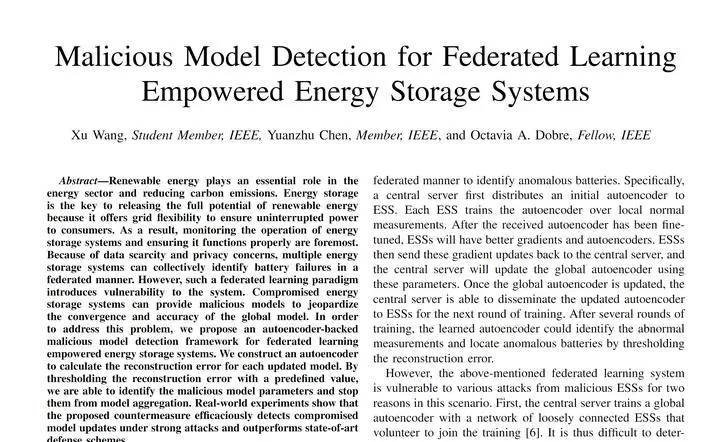 Image credit: Unsplash
Image credit: UnsplashAbstract
Renewable energy plays an essential role in the energy sector and reducing carbon emissions. Energy storage is the key to releasing the full potential of renewable energy because it offers grid flexibility to ensure uninterrupted power to consumers. As a result, monitoring the operation of energy storage systems and ensuring it functions properly are foremost. Because of data scarcity and privacy concerns, multiple energy storage systems can collectively identify battery failures in a federated manner. However, such a federated learning paradigm introduces vulnerability to the system. Compromised energy storage systems can provide malicious models to jeopardize the convergence and accuracy of the global model. In order to address this problem, we propose an autoencoder-backed malicious model detection framework for federated learning empowered energy storage systems. We construct an autoencoder to calculate the reconstruction error for each updated model. By thresholding the reconstruction error with a predefined value, we are able to identify the malicious model parameters and stop them from model aggregation. Real-world experiments show that the proposed countermeasure efficaciously detects compromised model updates under strong attacks and outperforms state-of-art defense schemes.